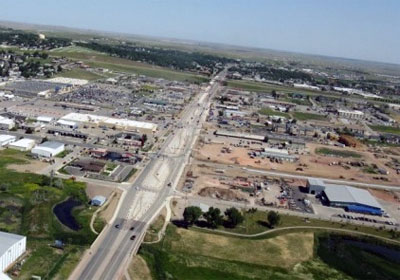Performance
Highways and Roadways Must Last Longer
Let’s face it, streets and roads must last longer. This is especially true now in the current economy, but frankly, a durable, long-lasting pavement is a better value to taxpayers than one that has to be resurfaced or repaired every few years.
Concrete has been used to build some of the longest-lasting streets and roadways in the world. No other paving material, no matter how commonly used, has been able to achieve the same performance as concrete.
 Across the United States, there are concrete roadways that were designed to last 20 years, but have instead lasted 30, 40, 50 years or longer. Many of these pavements are carrying significantly more traffic, including larger trucks carrying heavier loads, than originally planned, but because of concrete’s strength, are still carrying traffic years after they were expected to be repaired or replaced.
Across the United States, there are concrete roadways that were designed to last 20 years, but have instead lasted 30, 40, 50 years or longer. Many of these pavements are carrying significantly more traffic, including larger trucks carrying heavier loads, than originally planned, but because of concrete’s strength, are still carrying traffic years after they were expected to be repaired or replaced.
No matter where you live, you have probably experienced the frequent replacement of roads made from materials inferior in quality to concrete. These pavements were probably a little cheaper to build up front, but in the long run they are robbing us all with their high maintenance costs, as well as lost time from frequent delays for maintenance, resurfacing and replacement.
A very simple combination of water, sand, stone, and a a small amount of cement create strong, long-lasting concrete pavements. Concrete’s basic ingredients have not changed much in 100 years, but new technology is enhancing its features. For example, embedded fibers and special chemical additives—created by some of the brightest minds in the industry—make concrete even tougher and able to stand up to today’s heavy traffic and heavier loads.
For performance reasons, concrete pavements are the right choice beneath your tires.
